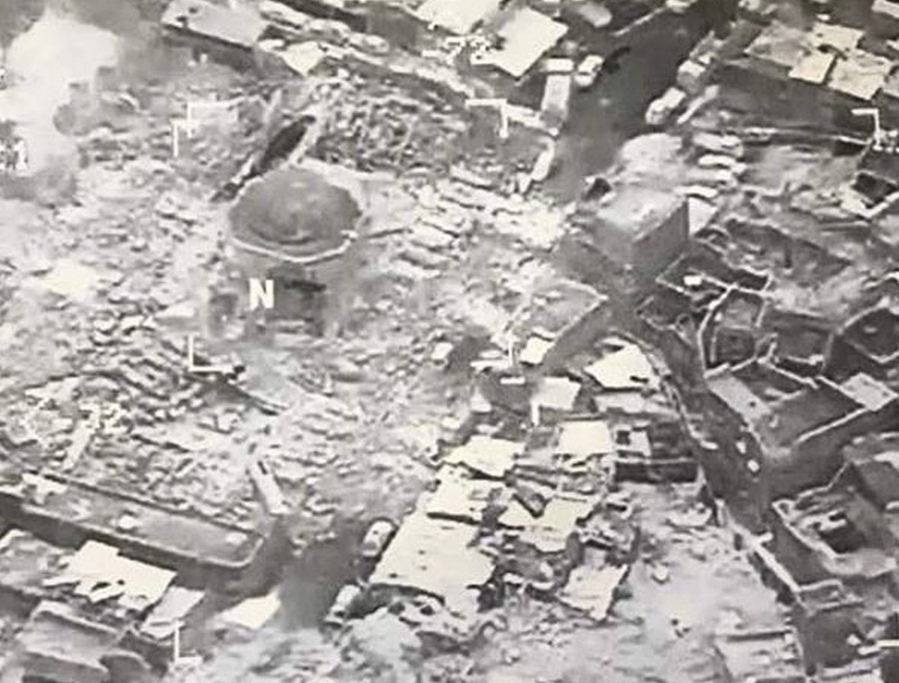MOSUL, Iraq — With their control of Mosul slipping away, Islamic State militants decided to send a message of defiance: They blew up the 12th century al-Nuri Mosque, along with its famous leaning minaret.
The mosque, destroyed Wednesday night, would have been a symbolic prize in the fight for Iraq’s second-largest city. It was from a pulpit in that mosque that the extremists’ leader, Abu Bakr al-Baghdadi, declared a caliphate in the lands they had seized in Iraq and Syria in July 2014.
According to Iraqi officials, the destruction of the landmarks indicated that IS defenses are crumbling and the campaign to retake Mosul — launched more than eight months ago — is in its final stages.
“They knew that the battle had been decided in favor of the Iraqi forces and they knew that we were going to enter the mosque in only a few hours,” said Iraqi special forces Lt. Gen. Abdul-Wahab al-Saadi, adding that his troops were only 50 yards from the mosque site.
“That’s why they exploded it,” he said.
Prime Minister Haider al-Abadi tweeted early Thursday that the mosque’s destruction was an admission by the militants that they are losing the fight, calling it a “formal declaration of their defeat.”
Inside western Mosul, residents were still reeling from the loss of the iconic structure that was blown up during the celebration of Laylat al Qadr, the holiest night of the year for Muslims.
The “Night of Power” commemorates when the Quran was revealed to the Prophet Muhammad during the holy month of Ramadan, which is in its waning days. The minaret that leaned like Italy’s Tower of Pisa had stood in Mosul for more than 840 years.
“It is a shock, a real big shock,” Amir al-Jumaili, a professor at the Archaeology College in Mosul, told The Associated Press.
The destruction of the mosque and the leaning minaret is only the latest in a long series of priceless archaeological and cultural sites that the militants have ravaged across Iraq and Syria.



